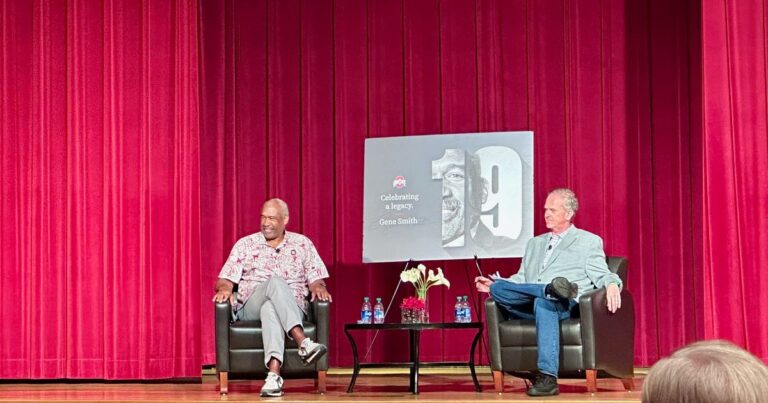declare He grabbed headlines for being “all in” to get the football team back to the top of the Big Ten, but he also touched on a number of topics.
Here are five of the most interesting.
On how changes in college athletics influenced his decision to retire now: “Just because there's a change doesn't mean I'm quitting. I mean, I'm probably a fool for accepting it. There's a part of me that wishes I was younger. I'm willing to embrace that change. Change is inevitable in life, and it happens all the time in our industry. Now, there has never been a collection of issues that are driving change like this. But either we embrace change or we don't care. It's very simple. And over the years, we've embraced change. You know, I've always looked at life that way. I have a hard time putting myself in an environment where everyone is sitting around a table talking about how bad things are. It's a waste of intellectual capacity and energy. Let's talk about solutions.
About the NCAA's governance model: “I think we've worked very well during my tenure. What we haven't been able to do is shift. I think there was a time when the association was strong and the governance structure was strong, but it's all about leadership. And… I have a lot of respect for (current NCAA President) Charlie Baker, but he's probably four or five years too late and this organization is trying to recover from the times and the services we serve. It didn't change in response to the ecosystem that was in place. That's why we have lawyers, politicians, and all the other interest groups and pressure groups organized right now, when there's a lack of leadership. He will take his place.”
He reflects on the key aspects that remain evident in the world of college athletics: “I hope that no matter what model comes along, we never forget what you said. It's still 17, 18-year-old kids that come to us. And they hopefully We mature, as they all do, over a period of preferably four or five years. And we're different from the pros in that respect.”
On one day schools licensing names to professional teams instead of using student-athletes: “I don't like that. I mean, I think whatever model exists, it should be tied to education.
“We've changed so many people's lives. A lot of them come to us and they're very mature, they're focused, they get things done. We facilitate their time and help them grow, but some come to us at a very immature level, and we do a great job of maturing them and helping them grow. You do a great job of helping the light bulb turn on for them, and you can name a student-athlete that you think, “Oh my god, the light bulb turned on.'' And that could be academic, it could be athletic, whatever it is. I think that in higher education, we need to connect that with education. If that's not part of it (and they) make it semi-pro and just take it out of the facility and pay for facilities and contracts to use the stadium, that model doesn't bother me. Sho. Because I know that student-athletes, even if they make some money, they're not taught how to live the next part of their lives. ”
On the possible realignment of major college football teams under a new “Super League” as proposed by some movers and shakers: “I think we need to pay attention to that. Maybe that's the right model, so we had to listen and learn. But I know this: I I don't want to sit in this seat, but if a place like Ohio State is in that model, it can't be like the NFL model where revenue is shared equally. We don't draft. They're going to hire people, they're going to chase championships, they're going to invest to chase championships in football. Everybody else doesn't do that.”

